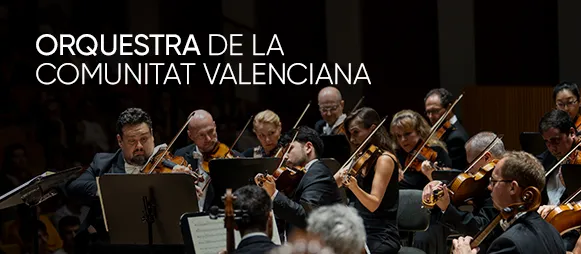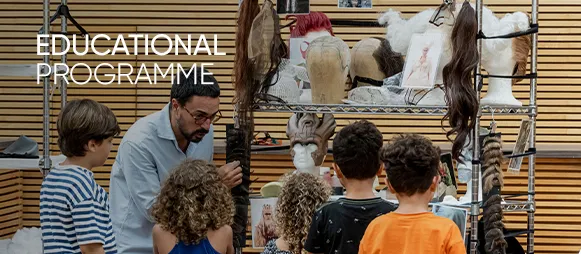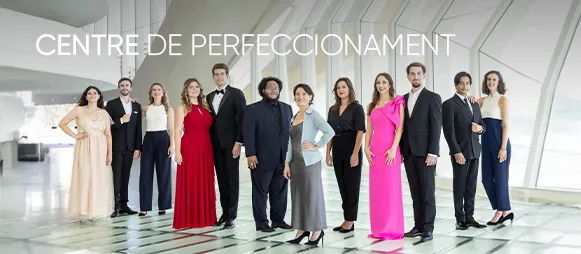
Comprar
10 €
Sa 25.04.26 | 7:00 pm
We 29.04.26 | 7:30 pm
Su 03.05.26 | 6:00 pm
We 06.05.26 | 7:30 pm
Sa 09.05.26 | 7:00 pm
Running time:
approx. 1 hour 45 minutes
Audio description
Audio Description
Subscriptions
Introducción
SALOME
Richard Strauss 1864-1949
Musikdrama in one act
Libretto by Richard Strauss
based on Hedwig Lachmann’s translation into German of Oscar Wilde’s Salomé
Premiere: 9 December 1905
Königliches Opernhaus, Dresden
Salome: un Nuevo Testament nihilista.
Oscar Wilde wrote the biblical drama Salome in French while living in Torquay, inspired by Gustave Moreau's painting of the Hebrew princess. The work, in highly poetic prose, was not written for the renowned French actress Sarah Bernhardt, although she certainly asked to perform it. Wilde chose French for personal and strategic reasons, as it was not possible to stage biblical subjects in Victorian Britain. Richard Strauss became acquainted with the drama at its first performances in Germany, in a translation by Hedwig Lachmann, a playwright and the first writer of the libretto, which Strauss then reduced to a third of its original length. The composer wanted to sustain the philosophical nihilism, close to Nietzsche, which Wilde embellished with his decadent preciousness. Salome is a Wagnerian New Testament, the purification of Wagner's Parsifal. But despite Strauss's desire to go beyond the Wagnerian path, the remnants of its structures remained in the architecture of this neurotic symphonic poem, which ends with a bloody Liebestod sung by the eponymous character to the beloved and holy head of the Baptist.
Oscar Wilde wrote the biblical drama Salome in French while living in Torquay, inspired by Gustave Moreau's painting of the Hebrew princess. The work, in highly poetic prose, was not written for the renowned French actress Sarah Bernhardt, although she certainly asked to perform it. Wilde chose French for personal and strategic reasons, as it was not possible to stage biblical subjects in Victorian Britain. Richard Strauss became acquainted with the drama at its first performances in Germany, in a translation by Hedwig Lachmann, a playwright and the first writer of the libretto, which Strauss then reduced to a third of its original length. The composer wanted to sustain the philosophical nihilism, close to Nietzsche, which Wilde embellished with his decadent preciousness. Salome is a Wagnerian New Testament, the purification of Wagner's Parsifal. But despite Strauss's desire to go beyond the Wagnerian path, the remnants of its structures remained in the architecture of this neurotic symphonic poem, which ends with a bloody Liebestod sung by the eponymous character to the beloved and holy head of the Baptist.
Strauss' sensual and perverse Salome returns to Les Arts in an original production by La Scala, conceived by Damiano Michieletto, whose works Il viaggio a Reims, Don Giovanni, La damnation de Faust and L'elisir d'amore have all been successfully staged in the Main Hall. This production by today's most visionary Italian director is one of the most striking of his career, rich in symbolism, with a visual power that gives a more contemporary image of the biblical character played by Vida Miknevičiūtė. This Lithuanian soprano, admired for her exceptional vocal talent and ability to convey the emotional complexity of Salome, has established herself as a leading performer of this controversial role, with more than 50 performances to her credit in the opera houses of Vienna, Munich and Berlin, as well as La Scala, where she has performed in this same production. She is accompanied by renowned artists such as John Daszak (Herod), Michaela Schuster (Herodias) and Nicholas Brownlee, and conducted by James Gaffigan.
Creative Team
conductor
James Gaffigan
Stage director
Damiano Michieletto
set designer
Paolo Fantin
costume designer
Carla Teti
lighting designer
Alessandro Carletti
Coreography
Thomas Wilhelm
Cast
Salome
Vida Miknevičiūtė
Herodes
John Daszak
Herodias
Michaela Schuster
Jochanaan
Nicholas Brownlee
Narraboth
Christopher Sokolowski
Orquestra de la Comunitat Valenciana
Production
A production from Teatro alla Scala de Milán
On the occasion of
Calendar and sessions
Saturday
25
apr
Wednesday
29
apr
Sunday
03
may
Wednesday
06
may
Saturday
09
may
You may also be interested in...








